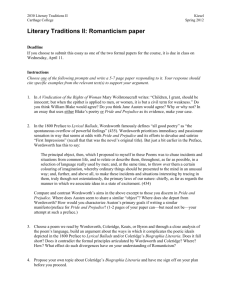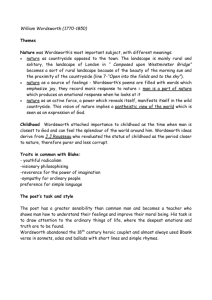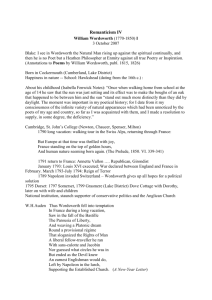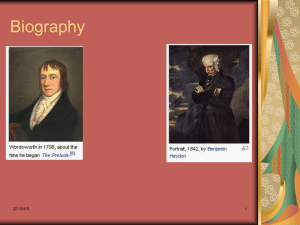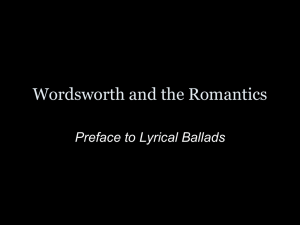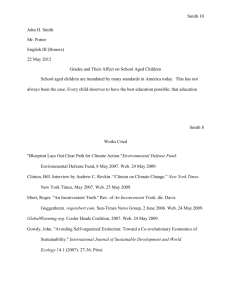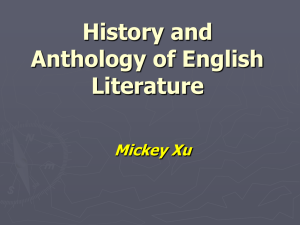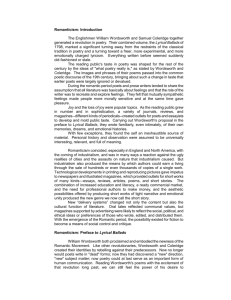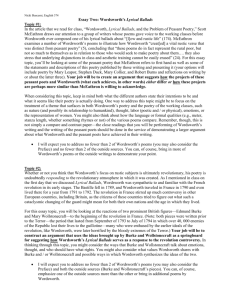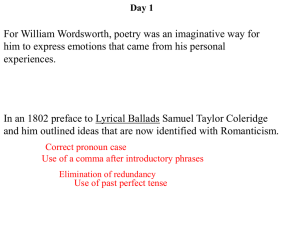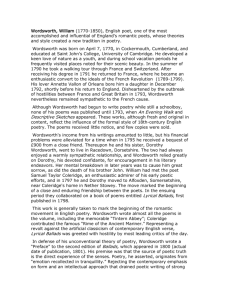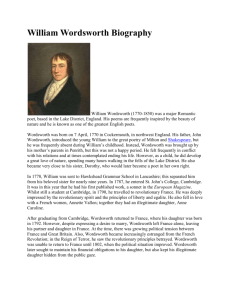Wordsworth's Preface to Lyrical Ballads Analysis
advertisement
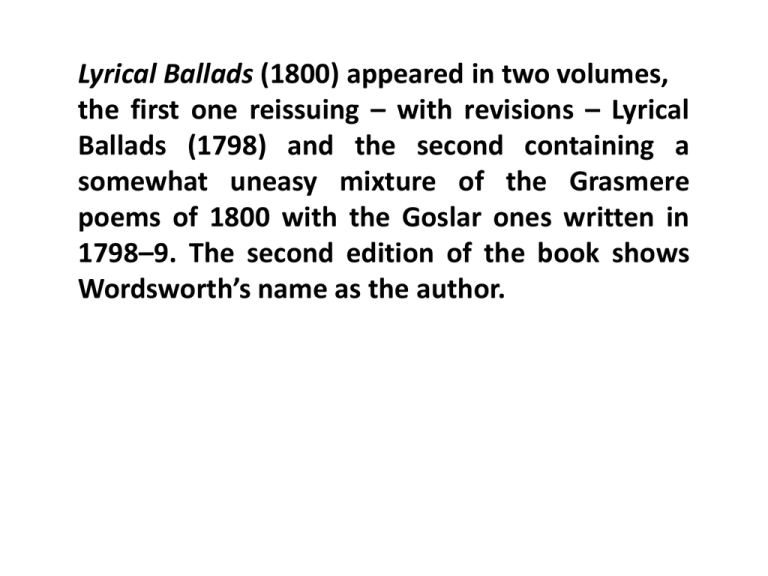
Lyrical Ballads (1800) appeared in two volumes, the first one reissuing – with revisions – Lyrical Ballads (1798) and the second containing a somewhat uneasy mixture of the Grasmere poems of 1800 with the Goslar ones written in 1798–9. The second edition of the book shows Wordsworth’s name as the author. Paramount among those changes made in the first volume of 1800 was Wordsworth’s addition to it of a critical manifesto, a PREFACE providing a lengthy theoretical justification for the works to follow. Wordsworth’s unshakeable faith in his own greatness and originality created the Preface to Lyrical Ballads to instruct his readers how to read those poems. Wordsworth defines poetry as “the spontaneous overflow of powerful feelings: it takes its origin from emotion recollected in tranquility”. He also explains his views on the elements on modern poetry. This Preface to Lyrical Ballads is considered a central work of Romantic literary theory. In it, Wordsworth discusses what he sees as the elements of a new type of poetry, one based on the "real language of men" and which avoids the poetic diction of much 18thcentury poetry. Wordsworth explained in the Preface that he sought to use vernacular language and to write about simple uneducated country people as that, to him, was a more "poetic" and "truthful" language than the more formal poetic diction of his day, which he thought artificial and insufficient to "celebrate" the beauty of the natural world. He also said: "The majority of the following poems are to be considered as experiments. They were written chiefly with a view to ascertain how far the language of conversation in the middle and lower classes of society is adapted to the purpose of poetic pleasure." MAJOR ARGUMENTS On the 'Subject and Language of Poetry': "The principal object […] was to choose incidents and situations from common life.“ Wordsworth justifies this by adding that our elementary feelings and passions can grow better in a field of rural life, which is built upon elementary feelings, and they may also be contemplated and communicated better than any other writer at the time. "[D]escribe [those incidents] […] in a selection of language really used by men. The rural men far from social vanity use their language to express feelings in a simple and unelaborated manner, more in connection with nature. He also claims that such a language is more permanent and philosophical because it results from "repeated experience and regular feelings". "[T]hrow over them a certain colouring of imagination, whereby ordinary things should be presented to the mind in an unusual way.“ "[M]ake these incidents and situations interesting by tracing in them, truly though not ostentatiously, the primary laws of our nature." But in the long view other aspects of his Preface have been no less significant in establishing its importance, not only as a turning point in English criticism but also as a central document in modern culture, Wordsworth feared that a new urban, industrial society's mass media and mass culture were threatening to blunt the human mind's "discriminatory powers“ and to "reduce it to a state of almost savage torpor." He attributed to imaginative literature the primary role in keeping the human beings who live in such societies emotionally alive and morally sensitive. Literature, that is, could keep humans essentially human. The Preface also contains his now famous definition of poetry as being, "the spontaneous overflow of powerful feelings from emotions recollected in tranquility". In his concentration on nature, Wordsworth showed love of nature at its most sublime, of mountains and of wild scenery, and this was in sharp contrast to the view that nature only after it had been manipulated by human hands, such as in landscape gardening, could then be considered a suitable subject for art and poetry. The final edition of the Wordsworth Lyrical Ballads was published in 1805. NATURE: in all its forms, was important to Wordsworth, but he rarely uses simple descriptions. Instead he concentrates on the ways in which he responds and relates to the world. He uses his poetry to look at the relationship between nature and human life, and to explore the belief that nature can have an impact on our emotional and spiritual lives. Throughout Wordsworth’s work, nature provides the ultimate good influence on the human mind. All manifestations of the natural world—from the highest mountain to the simplest flower—elicit noble, elevated thoughts and passionate emotions in the people who observe these manifestations. Wordsworth repeatedly emphasizes the importance of nature to an individual’s intellectual and spiritual development. A good relationship with nature helps individuals connect to both the spiritual and the social worlds. IMAGINATION Wordsworth saw imagination as a powerful, active force that works alongside our senses, interpreting the way we view the world and influencing how we react to events. He believed that a strong imaginative life is essential for our well-being. Often in Wordsworth's poetry, his intense imaginative effort translates into the great visionary moments of his work SOCIETY Wordsworth is often considered to be an egocentric poet interested only in himself, his experiences and his development, but this is not quite a fair reflection. He supported social reform and believed in what were popularly known as The Rights of Man, the rights to individual freedoms of thought and expression, the right to justice. Society was undergoing huge changes, and the drive for economic prosperity led to an increase in both urban and rural poverty. Wordsworth explores the impact of such changes on the emotional and spiritual lives of the characters in his poems. An emphasis on the emotions (a fashionable word at the beginning of the period was ‘sensibility’. This meant having, or cultivating, a sensitive, emotional and intuitive way of understanding the world). Exploring the relationship between nature and human life. A stress on the importance of personal experiences and a desire to understand what influences the human mind. A belief in the power of the imagination. An interest in mythological, fantastical, gothic and supernatural themes.
